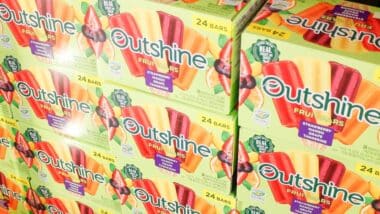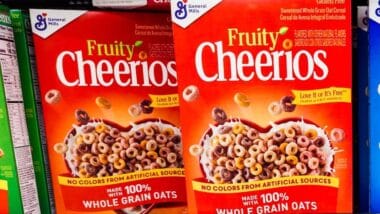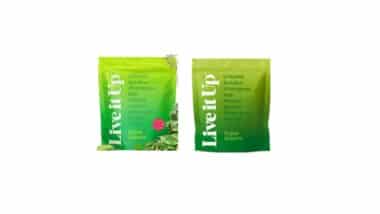
A Pennsylvania woman has filed a proposed class action lawsuit alleging Beanfields Bean Chips are deceptively marketed as being “packed with protein & fiber.”
According to lead plaintiff Anne Wightman, Beanfields Bean Chips are sold in a variety of flavors, with the products’ marketing focusing on the health benefits of beans and the importance of getting enough protein.
Wightman says she purchased Beanfields chips as recently as June 2020, paying $3.99 per bag for the company’s Nacho Bean Chip.
The plaintiff claims that she and other reasonable consumers purchased Beanfields chips believing they were accurately represented. She says she and others would not have made their purchases, or would have done so on different terms, had they known the truth.
The class action lawsuit says the company is in violation of federal regulations because it deceptively makes prominent claims about the chips’ protein and fiber contents on the front of the packaging while omitting the percentage of the daily value for protein and fiber on the Nutrition Facts panel.
The complaint further alleges the defendant leaves out a required disclosure about Beanfields chips’ total fat content, “which puts the fiber claims in proper context.”
Wightman claims reasonable consumers such as herself believe the phrase “packed with protein” indicates that a product is an “‘excellent source’ of protein.” She argues that belief is consistent with U.S. Food and Drug Administration (FDA) regulations that dictate a product can call itself an “excellent source” of protein if it contains 10 grams or more.
All the Beanfields chips products at issue “contain 4 grams of protein and fiber,” the class action lawsuit says.
Foods marketed as high in protein must also meet “a certain level of Reference Daily Intake (RDI) or Daily Reference Value (DRV)” — in the case of protein, the FDA says a food’s RDI or DRV for adults and children over four is 50 grams, Wightman’s class action lawsuit says.
This information generally is not required to be included, unless the product’s label makes a claim related to its protein content, Wightman says.
However, none of the Beanfields chips mentioned in the class action lawsuit include the percentage of the daily value for protein.
 “At most, the Products contain only 40% of the protein content required to substantiate high protein claims,” the class action lawsuit states. “By artfully omitting the DRV for protein, the Defendant is able to mislead and deceive consumers that the Products are excellent sources of protein.”
“At most, the Products contain only 40% of the protein content required to substantiate high protein claims,” the class action lawsuit states. “By artfully omitting the DRV for protein, the Defendant is able to mislead and deceive consumers that the Products are excellent sources of protein.”
The class action lawsuit alleges the defendant knew consumers would be misled by its representations and omitted information and intended them to pay a premium for products labeled as “high protein and fiber” over products that did not make those claims.
Wightman says consumers, including herself, were denied “the benefit of the bargain because the Products they purchased were different from what Defendant warranted” and because the products had less value than what was represented.
“Consumers are focused on increasing the amount of protein and fiber in their diets,” the class action lawsuit argues, meaning that increased demand indicates they are willing to pay higher prices for products marketed as high protein.
The class action lawsuit argues Beanfields’ false representations are likely to continue to deceive consumers.
The complaint alleges Beanfields, based in Los Angeles, is in violation of California’s Unfair Competition Law, False Advertising Law, and the Consumer Legal Remedies Act, as well as Pennsylvania’s Unfair Trade Practices and Consumer Protection Law, and accuses the company of breach of express warranties.
Wightman seeks to represent a nationwide Class of consumers who purchased Beanfields chips within the relevant period; she also wishes to represent a Pennsylvania subclass of consumers who purchased the products in the six years preceding the filing of the class action lawsuit.
The plaintiff demands a jury trial and seeks an order declaring the defendant’s conduct illegal, an order requiring Beanfields to immediately stop selling their allegedly misbranded products and ordering the company to take corrective action.
In addition, the plaintiff is seeking an award of compensatory and monetary damages or restitution, punitive damages, attorneys’ fees and court costs, and pre- and post-judgment interest on all amounts awarded.
Have you purchased Beanfields chips? Are you surprised to learn they may not be as high in protein as you thought? Tell us about your experience in the comments.
The plaintiffs are represented by Matthew J. Matern, Joshua D. Boxer and Corey B. Bennett of Matern Law Group PC and Steffan T. Keeton of The Keeton Firm LLC.
The Beanfields Chips Class Action Lawsuit is Anne Wightman, et al. v. Beanfields PBC, Case No. 2:20-cv-10731, in the U.S. District Court for the Central District of California.
Read About More Class Action Lawsuits & Class Action Settlements:















48 thoughts onBeanfields Chips Are Deceptively Marketed as ‘Packed With Protein,’ Class Action Lawsuit Says
Please add me
Please add me
Please add me
Please add me
add me
Please add me.
add me
add me